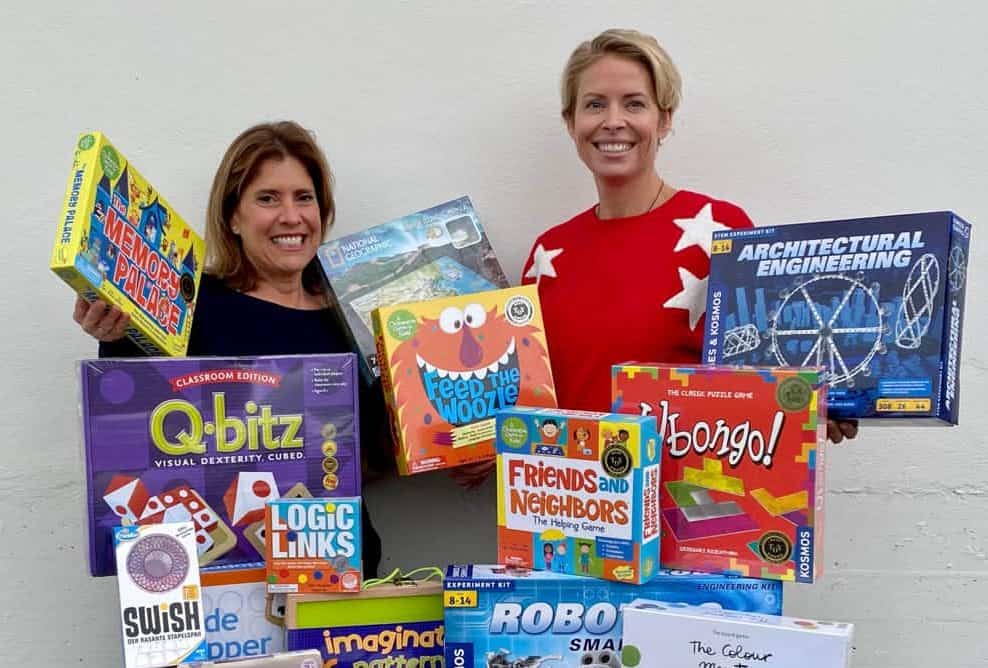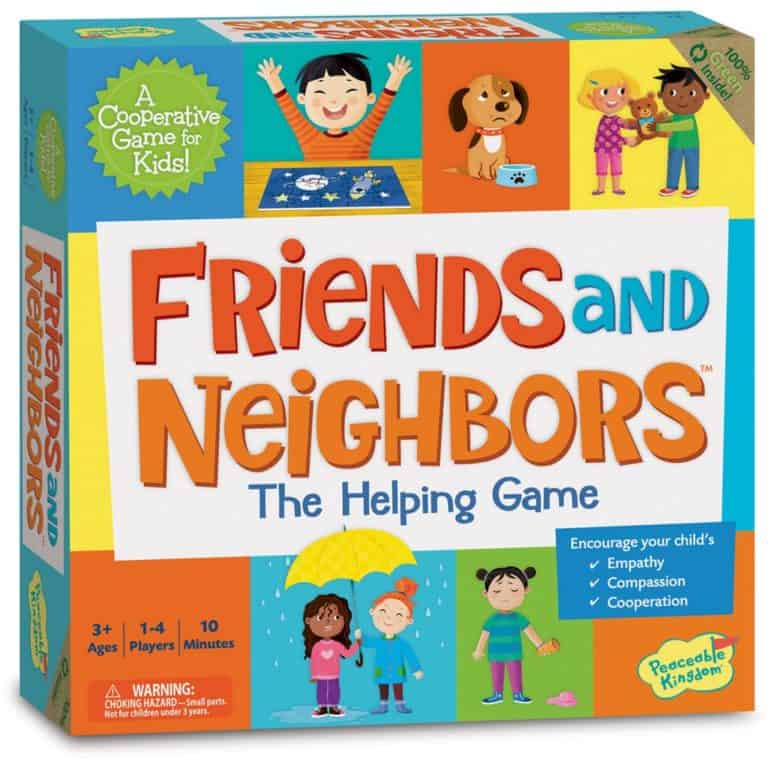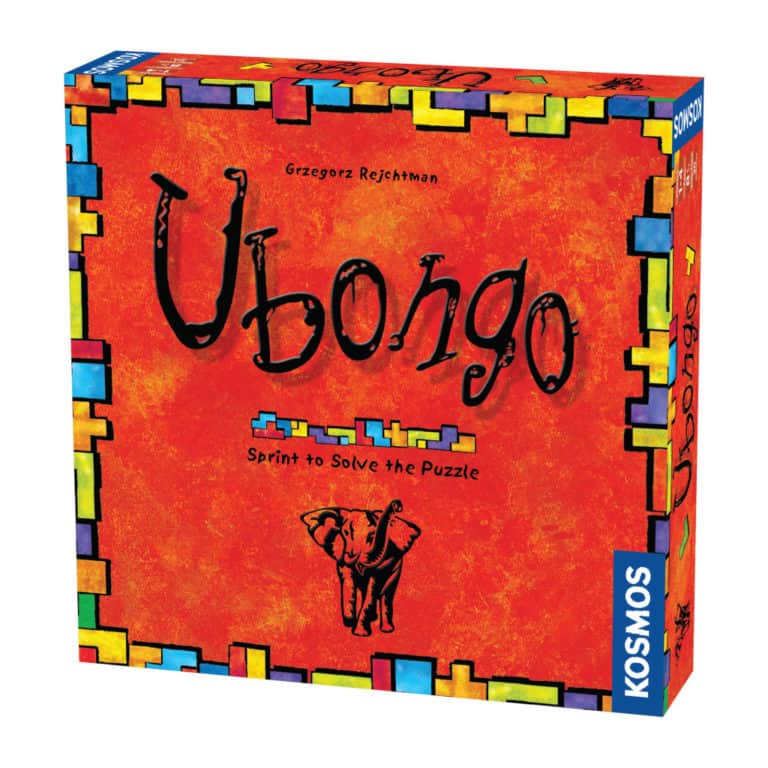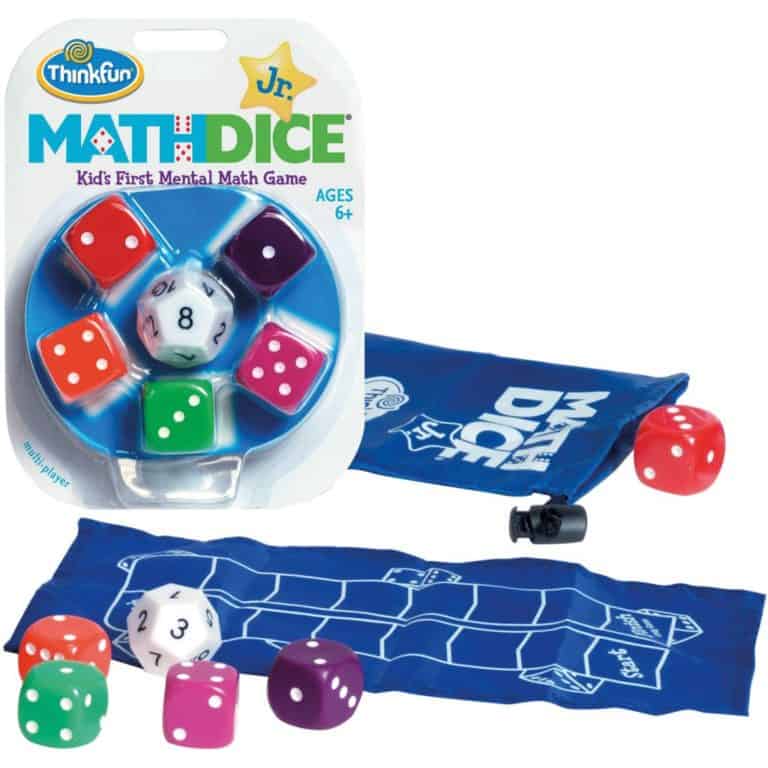The Power of Play: The Steam Room

Interview with Educational Toy Company The STEAM Room
2020: The year of homeschooling. When parents were faced with the realities of what it really takes to educate their child, and saw first hand how they could support their schooling within the home environment.
Today we are talking to Gina Noonan and Camilla Chalmers from The STEAM Room, a Swiss based educational toys and games company, who have made it their mission to reinforce classroom learning in the home on the condition that it’s always fun….

What led to the start of The STEAM Room?
Arriving in Switzerland with young children over a decade ago, it quickly became apparent that a huge amount had changed since our schooling days. Gone was rote learning, memorization and linear thinking, replaced with a focus on fostering creativity, critical thinking and problem solving skills.
The new buzz words are STEM or even STEAM (Science, Technology, Engineering, Art and Maths).
It is an exciting and enlightened time for a child to be a student and we became interested in what we could do as parents to help support the learning process in the classroom.
Copious trips to department stores and retail outlets ensued to find the right ‘tools’ but to quote Jenn Choi, mother of two boys and renowned journalist, “Toy stores, it turns out, are the worst place to buy toys.”
Turning away from the barrage of battery-operated toys with cartridges, sounds and styluses, we spent the last decade researching and testing educational toys and games from all over the world; discovering innovative products emphasizing everything from engineering for girls, to classroom empathy and communication, to maths and language skills.
We were determined to steer away from yet more junk! Almost all of our toys and games have won globally recognised awards.
Critically we wanted products that enabled the child to make inquiries and attempt to answer them, toys designed with a focus on what the child can do, rather than what the toy can do. Instead of focusing all their attention on machines that speak, early learners actually need to practice so-called joint attention skills. These skills are going to directly impact their ability to learn in a classroom, to speak up in a meeting, to make sense of conflicting thoughts and points of view.
That may sound terribly worthy, but we really just wanted to make learning exciting, to make a difference to how children (and adults) adapt and adjust to new ideas, and to bolster children who might find some traditional educational methods restrictive. We also wanted toys that were fresh to Switzerland and which we could use ourselves!
Do you see these skills as important in a technology driven 21st Century?
The top 3 skills required by Fortune 500 companies in 1970 were reading, writing and arithmetic. The top 3 skills required by Fortune 500 companies in 1999 were teamwork, problem solving and interpersonal skills.
The World Economic Forum’s 2018 “The Future of Jobs Report” notes that 75 million jobs will be displaced by 2022 as the balance of labour shifts to AI and robots.
Now the good news.
That same report notes that AI, robotics, and automation will create 133 million new jobs. That means a net gain of 58 million new jobs around the world. Automation will likely create more jobs than it will eliminate.
The role of AI will be to replace ‘tasks’ rather than jobs; soft human skills will therefore become increasingly important and dominate educational curricula more than ever.
The World Economic Forum ranks complex problem solving as the most needed skill to survive the rise of automation, with critical thinking a close second. Fortune Magazine spoke about the importance of innovation, creativity, collaboration.
These are typically very hard to teach from textbooks which is why the Huffington Post stated “Toys are the new textbooks”.
To that end we now stock a broad variety of logic and problem solving games starting from 3+. From Pattern Play which acts as a great introduction to maths concepts such as sorting, matching, symmetry and fractions, through to Cool Circuits which challenges spatial reasoning and abstract thinking.

Primary School Teacher, International School
“The STEAM Room provides fantastic resources based on critical thinking, language development, creativity and so much more, perfectly suitable for children and adults. As a teacher, these educational games stimulate thinking skills, logic and strengthen group work in wonderful ways. I am so grateful to have these in the classroom and they are a big favourite for the students!”.
One of our favourites is Ubongo (meaning Brain in Swahili), a fun fast paced, easy to learn geometric puzzle game. When the family call for ‘Games Night’ goes out, this is the one we turn to! And it’s a lot quicker than Monopoly!!
But for us the first and foremost test for a game to pass our rigorous criteria, was the ‘Would we play it ourselves?’ question.
Your toys are mainly english language focused – was that deliberate?
As Ex-Pats ourselves we started out finding games which we could use, and gradually grew to supply friends and finally the International Schools where english is often the common language.
When we first arrived in Switzerland it was impossible to find any science kits in english for example, so we tried to fill in the gaps and offer a range of products which simply weren’t available here.
International School Teacher
“I have watched the children in my class get excited when they play these games. The activities are mind-expanding and the children love to make connections while they are playing. I have seen their relationships strengthen as they share a positive experience. These are the games you wish your children were playing. I brought them home to my own children and they were absorbed for hours. You can spend months on the Internet tracking these games down or you can just look at this website.”
Our specific USP is the years of research that has gone into sourcing the products and the close partnerships we have formed with toy designers and manufacturers all over the world – with such a diverse global range, english tends to be the go to.
That said we always to try where possible to supply instructions in multi-languages and carry a range of games which actively help with language development.
Do you have any particular favourite toys?
Camilla: I love the Goldieblox Range. I was never a doll person growing up and couldn’t understand the draw of Barbie and Cindy with their implicit message of the importance of superficial beauty. So a range of toys designed to inspire girls to love science, technology, engineering and mathematics was right up my street!
I love that each project kit deals with a specific engineering concept, such as wheel and axel and hinge, in a fun and creative way, and that you can add to the story with each new set.
Women represent over 50% of the population, and yet a mere 24% of the STEM workforce, 14.6% of executive officers, 8.1% of top earners, and 4.6% of Fortune 500 CEOs. I’m not blaming this on Barbie! But I do believe that is it vital that we constantly remind girls of their potential and ability to be original, and above all to give them confidence.
Gina: That’s like picking a favourite child!! It’s really hard to go for one toy but I really like the range of Cooperative games we have for the Early Years. The ability to connect, take cues, seek clarification, and collaborate, has never been more important and introducing these skills from Pre-Reception is vital.

Games such as The Colour Monster, Friends and Neighbors, Guess is Get it Gumballs all focus on team efforts to help problem solving, promoting group cohesion and identity and fostering a sense of belonging.
This underlying ethic of respectful interaction helps to develop empathy skills as opposed to the dog-eat-dog ethos that historically characterised classrooms. Studies have shown that this has a very positive impact on the classroom environment, reducing aggression and lowering anxiety, promoting pro-social skills including sharing and kindness.
And above all they are huge fun! Our children loved seeing their parents trying to Feed the Woozle!!
Where to find The STEAM Room
The STEAM Room can be found online at www.thesteamroom.com, or by phone on +41 (0) 79 75784 80. We offer free shipping within Switzerland on all orders over 75 – CHF and aim to post within 24hrs of every order.
We always love interacting with parents, and greatly value feedback and ideas, so please do get in contact.
International School Parent
“At birthday parties, I noticed that my children’s friends were getting presents in doubles and triplicates. Often, the presents reflected the trend of the month or whatever looked ok and was readily available at the closest toy store…
The Steam Room gift cards saved me from all predicaments. The birthday girl or boy gets to choose what they want out of the wide selection of toys available on the Steam Room website.
My conscience is clear because I know that whatever the child chooses will be a fun product of quality. Although I can make the order from the comfort of my home, since Steam Room is a local business, I know that help is just a phone call away. Gina, the owner, knows the products inside out. You can tell she has put a lot of energy in the selection of the toys she is promoting. These toys are so well-thought-out that parents will enjoy exploring the Steam Room, too.”
About the Steam Room
Gina and Camilla both live in Switzerland with a selection of children stretching across a range of year groups. Following long careers in finance, marketing and environmental public policy, we are incredibly excited to turn our energies towards providing our, and hopefully your, children with an exceptional selection of toys and games.
More from International School Parent
Find more articles like this here: www.internationalschoolparent.com/articles/
Want to write for us? If so, you can submit an article here: www.internationalschoolparent.submittable.com
